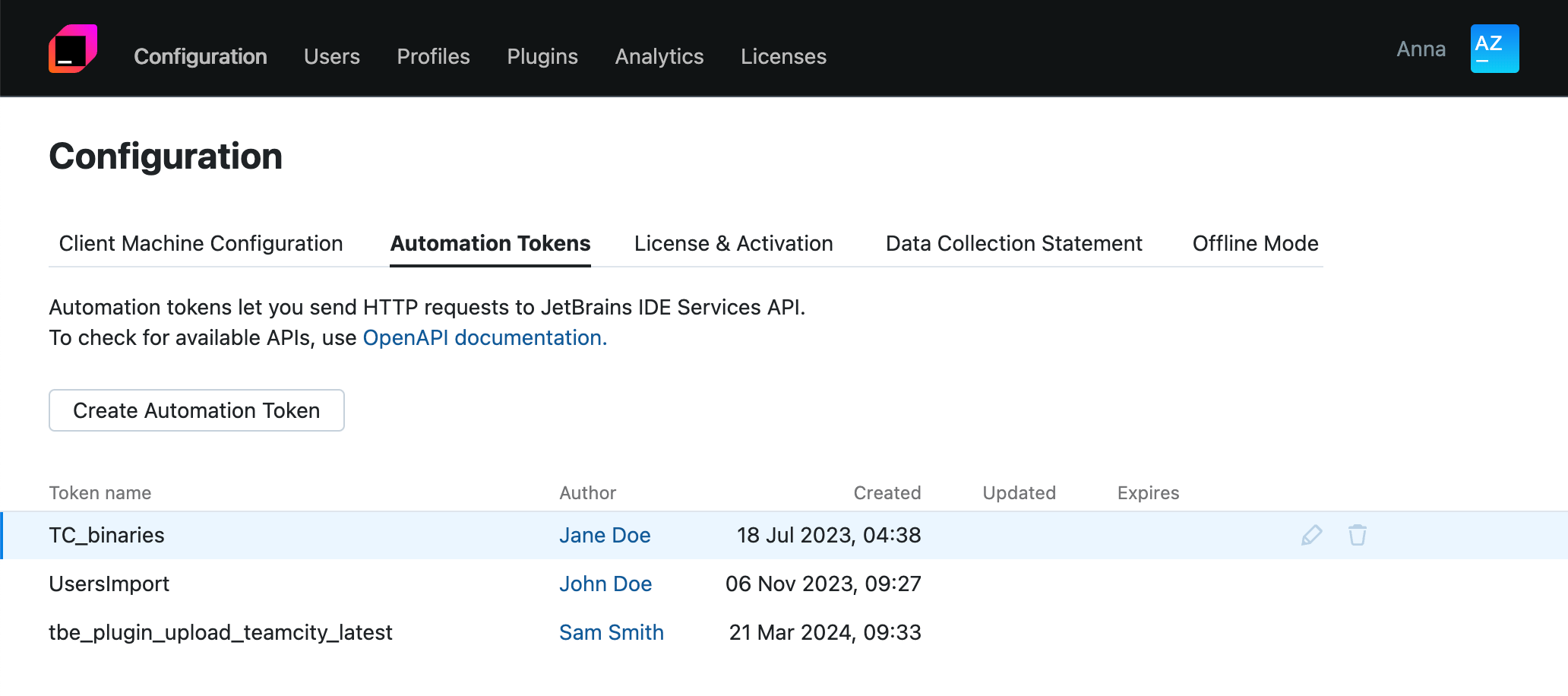REST API
Last modified: 03 April 2025IDE Services provides both a user interface (Web UI) and application programming interface (API) to execute all essential operations on the IDE Services Server.
IDE Services has both public and private REST API endpoints. Most of the endpoints are private, so if there are unforeseen breaking changes, there will be no warnings or deprecation periods. While we still provide documentation on these breaking changes in release notes, we strongly advise against using the private API.
Currently, the following endpoints are available publicly:
POST /api/import/usersImport of users and permissionsPOST /api/pluginsUploading a new plugin or plugin version
Automation Tokens
Most requests to the IDE Services Server require the Authorization header. It supports:
OAuth 2.0 tokens from the external OAuth2 service provider used in your company
Automation tokens created on the IDE Services Server

Create an automation token
In the Web UI, open the Configuration page and navigate to the Automation Tokens tab.
Click Create Automation Token.
In the Create Automation Token dialog, specify the token name and set its expiration date. Click Create.

Swagger Documentation
The Swagger pages are enabled by default on the server. You can manage them using the springdoc.api-docs.enabled and springdoc.swagger-ui.enabled properties in the server configuration file.
The Swagger API documentation is available at https://<your_organization>/swagger-ui.html and contains three pages:
IDE Services Public
IDE Services Private
License Vault Public
Use the dropdown in the top-right corner of the screen to switch between the Swagger API pages.
